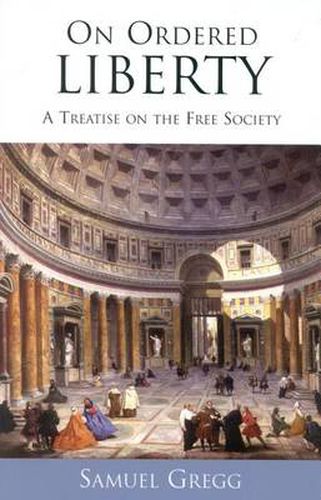Readings Newsletter
Become a Readings Member to make your shopping experience even easier.
Sign in or sign up for free!
You’re not far away from qualifying for FREE standard shipping within Australia
You’ve qualified for FREE standard shipping within Australia
The cart is loading…






Perhaps no issue is more divisive among philosophers, jurists and theologians than the nature of human liberty. Liberty is central to the claims of the Christian Gospel, the Glorious Revolution of 1688 and the American Revolution. But discussions about the nature of freedom have been characterised by profound disagreement and unsettling questions. What does it mean to be free? Is freedom worth more than human lives? Why should we be free? What, if any, legitimate responsibilities accompany freedom? These subjects are at the heart of Samuel Gregg’s book. Beginning with the insights of Alexis de Tocqueville and some natural law theorists, Gregg suggests that something which he terms integral law must be distinguished from most contemporary visions of freedom. He argues that this new arrangement requires a complete repudiation of utilitarian ideas on the grounds that they are incompatible with human nature. he also recommends a new and more rigorous focus on the basic but often neglected question: what is human?
$9.00 standard shipping within Australia
FREE standard shipping within Australia for orders over $100.00
Express & International shipping calculated at checkout
Perhaps no issue is more divisive among philosophers, jurists and theologians than the nature of human liberty. Liberty is central to the claims of the Christian Gospel, the Glorious Revolution of 1688 and the American Revolution. But discussions about the nature of freedom have been characterised by profound disagreement and unsettling questions. What does it mean to be free? Is freedom worth more than human lives? Why should we be free? What, if any, legitimate responsibilities accompany freedom? These subjects are at the heart of Samuel Gregg’s book. Beginning with the insights of Alexis de Tocqueville and some natural law theorists, Gregg suggests that something which he terms integral law must be distinguished from most contemporary visions of freedom. He argues that this new arrangement requires a complete repudiation of utilitarian ideas on the grounds that they are incompatible with human nature. he also recommends a new and more rigorous focus on the basic but often neglected question: what is human?